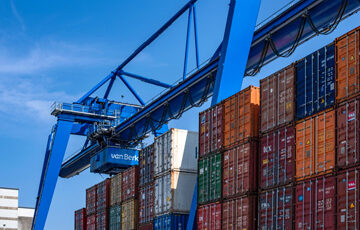
Cross-border debt recovery under Dutch law requires a nuanced understanding of various international legal frameworks, highlighting the importance of a Dutch debt collection attorney. But what does it truly entail?
In the realm of debt collection in the Netherlands, cross-border cases present unique challenges, demanding expertise in global legal practices. A leading Netherlands law firm offers valuable insights into overcoming these complexities in Dutch debt recovery. Navigating cross-border debt recovery involves more than just legal knowledge. It requires an in-depth understanding of cultural nuances and a strategic approach tailored to each case. A proficient Dutch debt collection attorney plays a crucial role in deciphering these international complexities.
Cross-border debt recovery under Dutch law
This exploration delves into how jurisdictional differences impact cross-border debt recovery under Dutch law and debt recovery strategies. It draws from real-life case studies, demonstrating the effectiveness of specialized approaches in debt collection in the Netherlands. These insights are crucial for anyone facing the daunting task of recovering debts across borders. The expertise of a Netherlands law firm becomes invaluable in these scenarios. Their knowledge in Dutch debt recovery not only aids in understanding the legal landscape but also equips clients with practical solutions. This comprehensive view is essential for successfully managing cross-border debt recovery challenges.
The Challenges of Cross-Border Debt Recovery
Cross-border debt recovery poses significant challenges that require a thorough and precise approach to navigate the complexities of international legal frameworks, jurisdictional issues, and cultural differences.
When attempting to recover debt across borders, one of the primary challenges is the existence of different legal systems and jurisdictional rules. Each country has its own set of laws and procedures governing debt recovery, making it essential to have a comprehensive understanding of the legal landscape in each jurisdiction involved.
Moreover, jurisdictional issues often arise due to conflicts between the laws of different countries. Determining which jurisdiction has the authority to hear a debt recovery case can be a complex task, as it involves analyzing various factors such as the location of the debtor, the place of the debt agreement, and any applicable jurisdiction clauses.
Cultural differences further complicate the process of cross-border debt recovery. Different societies have diverse attitudes towards debt and may approach recovery efforts differently. Understanding these cultural nuances is crucial to effectively communicate and negotiate with debtors, increasing the chances of successful recovery.
To overcome these challenges, a meticulous and analytical approach is necessary. Thorough research of the legal frameworks and jurisdictional rules of each relevant country is vital to determine the most effective course of action. Additionally, engaging local legal experts who have expertise in cross-border debt recovery can provide invaluable guidance in navigating the intricacies of different legal systems and cultural norms.
Understanding International Legal Frameworks
The comprehension of international legal frameworks is essential in navigating the complexities of cross-border debt recovery. Understanding the legal systems and regulations of different countries is crucial for creditors seeking to recover debts from debtors located in foreign jurisdictions. Here are three key aspects to consider when it comes to understanding international legal frameworks:
- Jurisdiction: Determining the appropriate jurisdiction to pursue debt recovery is a fundamental step. Each country has its own laws and procedures governing debt collection, and it is important to understand where the debtor’s assets are located and which jurisdiction has the authority to enforce debt recovery.
- Enforcement Mechanisms: Familiarity with the enforcement mechanisms available in different jurisdictions is crucial. This includes understanding the local legal procedures, court systems, and enforcement agencies that can assist in debt recovery. It is important to assess the effectiveness and efficiency of these mechanisms in order to choose the most suitable avenue for debt recovery.
- International Treaties and Conventions: International treaties and conventions play a significant role in cross-border debt recovery. Treaties such as the Hague Convention on the Recognition and Enforcement of Foreign Judgments provide a framework for the recognition and enforcement of foreign judgments in participating countries. Understanding the provisions of these treaties and conventions can greatly facilitate the debt recovery process.
Cultural Considerations in Debt Collection
Understanding cultural factors is crucial in the process of debt collection, as it can significantly impact the effectiveness and success of cross-border debt recovery efforts. Cultural considerations play a vital role in determining how debtors perceive and respond to debt collection practices, influencing their willingness and ability to repay outstanding debts.
Different cultures have varying attitudes towards debt and financial obligations. For instance, in some cultures, debt is seen as a personal matter and discussing it openly may be considered taboo. In such cases, debt collectors need to approach debtors with sensitivity and respect for their cultural norms, ensuring that the collection process does not cause embarrassment or loss of face for the debtor.
Moreover, communication styles and negotiation tactics may differ across cultures. Debt collectors must adapt their approach accordingly to establish effective communication channels and build trust with debtors. This may involve using local languages, understanding local customs, and employing culturally appropriate methods of persuasion and negotiation.
Cultural nuances can also impact the legal framework within which debt collection operates. Laws and regulations concerning debt collection can vary significantly between countries, influenced by cultural norms, historical practices, and societal values. Debt collectors must have a comprehensive understanding of the cultural context in which they are operating to ensure compliance with local laws and regulations.
Strategies for Effective Cross-Border Debt Recovery
Cultural considerations in debt collection lay the foundation for the implementation of effective strategies in cross-border debt recovery efforts. When it comes to recovering debts across borders, it is crucial to have a well-thought-out plan in place. Here are some key strategies to consider:
- Understanding local laws and regulations: Each country has its own legal system and regulations governing debt collection. Familiarizing yourself with these laws will help you navigate the process effectively and avoid any legal pitfalls.
- Building strong relationships: Establishing trust and maintaining good relationships with debtors and local contacts can greatly enhance your chances of successful debt recovery. Cultivating a respectful and professional approach will go a long way in resolving disputes and negotiating payment arrangements.
- Utilizing technology and data analysis: Leveraging technology and data analysis tools can streamline the debt recovery process. By utilizing advanced software and data analytics, you can identify patterns, track debtors’ financial activities, and develop targeted strategies to recover debts efficiently.
Navigating Jurisdictional Differences
Navigating jurisdictional differences is a critical aspect of cross-border debt recovery, requiring a thorough understanding of international legal frameworks and the intricacies of each jurisdiction involved. When pursuing debt recovery across borders, creditors must consider the jurisdiction where the debtor is located, as well as the jurisdiction where the enforcement action will take place. Each jurisdiction has its own unique legal system, procedural rules, and enforcement mechanisms, making it essential to carefully navigate these differences to ensure a successful outcome.
One of the main challenges in cross-border debt recovery is determining the applicable law. This involves identifying the governing law specified in the contract, determining whether any international conventions or treaties apply, or relying on the conflict of law rules of the relevant jurisdiction. Additionally, understanding the jurisdiction’s rules on jurisdiction and choice of court agreements is crucial, as these may impact where the creditor can initiate legal proceedings.
Another important consideration is the recognition and enforcement of foreign judgments. Not all jurisdictions automatically recognize and enforce foreign judgments, requiring creditors to go through specific procedures to ensure the judgment is enforceable. This may involve obtaining a declaration of enforceability or applying for a domestic judgment in the enforcing jurisdiction.
Furthermore, language and cultural differences can also pose challenges in cross-border debt recovery. It is essential to work with experienced legal professionals who have a deep understanding of the legal systems and languages involved to navigate these differences effectively.
Conclusion
In conclusion, cross-border debt recovery poses various challenges due to jurisdictional differences, international legal frameworks, and cultural considerations. However, by understanding these complexities and implementing effective strategies, successful debt recovery can be achieved. Businesses and individuals must seek professional guidance from experienced law firms to navigate the intricate process of cross-border debt recovery.
If you have any questions or require legal assistance about cross-Border debt recovery under Dutch law, please don’t hesitate to reach out to our knowledgeable and dedicated team at our Dutch debt recovery law firm.


